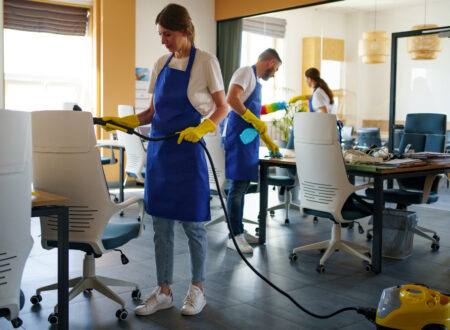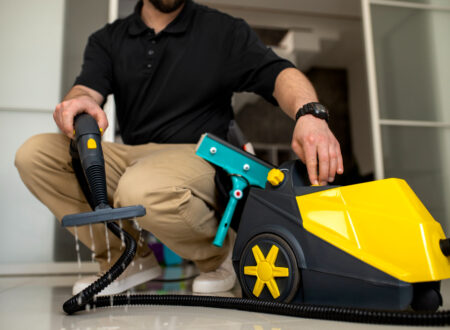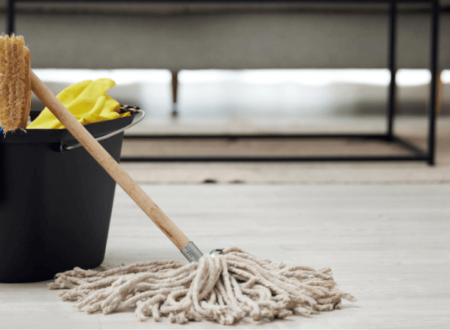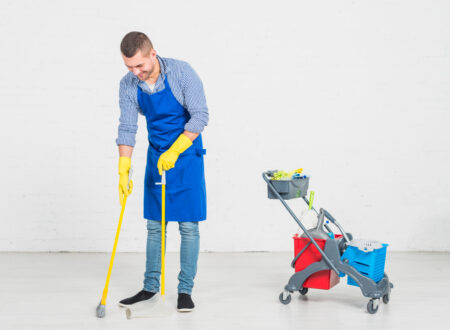While having services like End Of Tenancy Cleaning Harrow you need to be careful about little details. Mostly vinegar is used as the go-to solution for cleaning product alternatives. Although vinegar is frequently praised for its all-natural cleaning abilities, it is not appropriate for rubber cleaning.
Seals, gaskets, tires, and even some types of clothing are all made of rubber and need to be cleaned carefully. Thus, It is crucial to use caution while getting services like End Of Tenancy Cleaning Harrow. Here we will see the potential drawbacks of using vinegar on rubber surfaces. And offers substitute cleaning techniques to protect the durability and quality of your rubber products.
Reasons vinegar is not used as a cleaning agent in our End of Tenancy Cleaning Harrow service
Deterioration and Chemical Reaction
Rubber is a substance renowned for its suppleness and toughness, yet it may be delicate to some cleaning solutions. Because vinegar is acidic, it can cause rubber surfaces to degrade by starting a chemical reaction. Vinegar’s acetic acid may deteriorate the rubber, making it brittle, crack-able, or lose its elasticity.
Rubber products, such as seals, gaskets, or floor mats, may sustain lasting damage as a result, necessitating costly repairs. Due to these reasons, our cleaners don’t use vinegar to clean rubber articles while providing End Of Tenancy Cleaning Harrow service.
Deficiency in Functionality
Products made of rubber frequently have useful functions including insulation, leak protection, or a tight seal. Vinegar cleaning these objects might make them less useful. Rubber material may expand, soften, or deform as a result of the vinegar and rubber interaction. Rubber gaskets, seals, or hoses may become ineffective as a result. This might result in leaks, decreased energy efficiency, or broken machinery.
Harm of Rubber gaskets and seals
In order to maintain airtight and watertight seals in different appliances and plumbing fittings, rubber seals and gaskets are essential. Cleaning rubber gaskets and seals with vinegar might result in swelling, softening, or deformation of the rubber substance. This may impair the seals’ ability to operate, resulting in leaks, decreased efficiency, and sometimes even equipment damage. Preserving the integrity of rubber seals and gaskets necessitates the use of milder cleaning techniques.
Accelerated Deterioration
Tires and shoes with rubber soles are two examples of rubber products that experience frequent wear and strain. Using vinegar as a cleaning product has been shown to accelerate the degradation of rubber goods, even though they require regular cleaning to maintain their condition. Because of vinegar’s acidic composition, the rubber may become weaker and more prone to cracking and other forms of deterioration. To increase the lifespan of things made of rubber, it is crucial to select the right cleaning methods and supplies.
Discoloration and Staining
White vinegar, in particular, is renowned for its ability to effectively eliminate stains and discoloration from various surfaces. However, vinegar may actually discolor and damage rubber when used on it. This holds particularly true for rubber goods that are brightly colored or white in color. Rubber colors can react with vinegar’s acid to produce long-lasting stains or ugly discoloration. This might reduce the visual appeal of your rubber items.
Alternative cleaning methods we employ while offering End of Tenancy Cleaning Harrow service
Several other techniques we used to efficiently maintain and clean rubber goods without using vinegar:
Warm water and mild soap or detergent
Our cleaners make a solution using these two ingredients. With the light use of a soft cloth or sponge, they gently clean the rubber surface. After that, they rinse it well, then let it air dry.
Rubber-Safe cleansers
We often use specialized rubber cleansers. We created these products specifically for cleaning and conditioning rubber without causing any harm to it.
Silicone-Based Protectants
Sometimes we also use silicone-based protectants to keep rubber products flexible and resilient. These safeguards serve as a barrier, protecting the rubber from scuffs, wetness, and UV deterioration.
Refrain from Using Harsh Chemicals
We avoid using harsh chemicals, solvents, and abrasive cleaners to clean rubber since they may result in permanent damage.
Conclusion
Using vinegar to clean rubber surfaces is not recommended as it can cause damage. Rubber products are susceptible to degradation, damage, and discoloration due to vinegar’s acidic nature over time. To guarantee the durability and effectiveness of your rubber items, it is essential to choose alternative cleaning techniques. You may preserve the quality of your rubber products and increase their usability by selecting the appropriate cleaning services.






